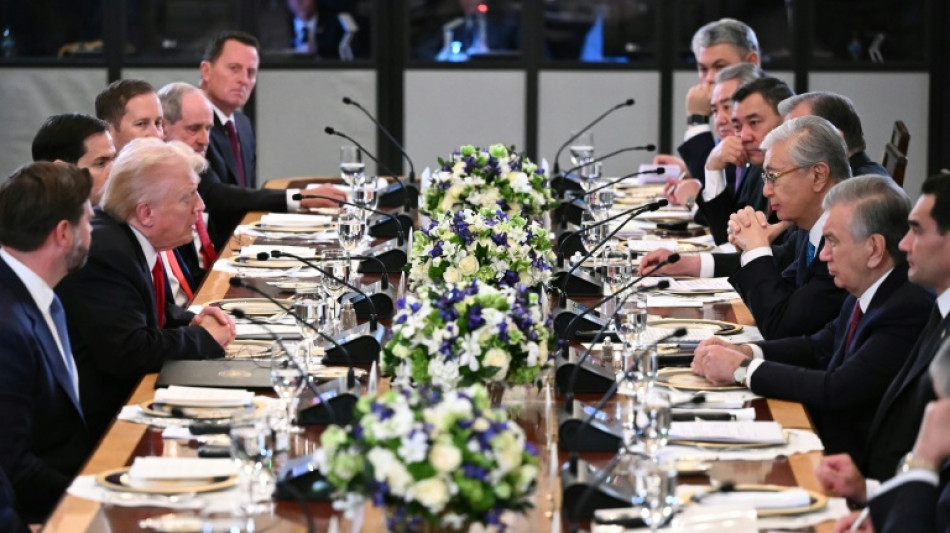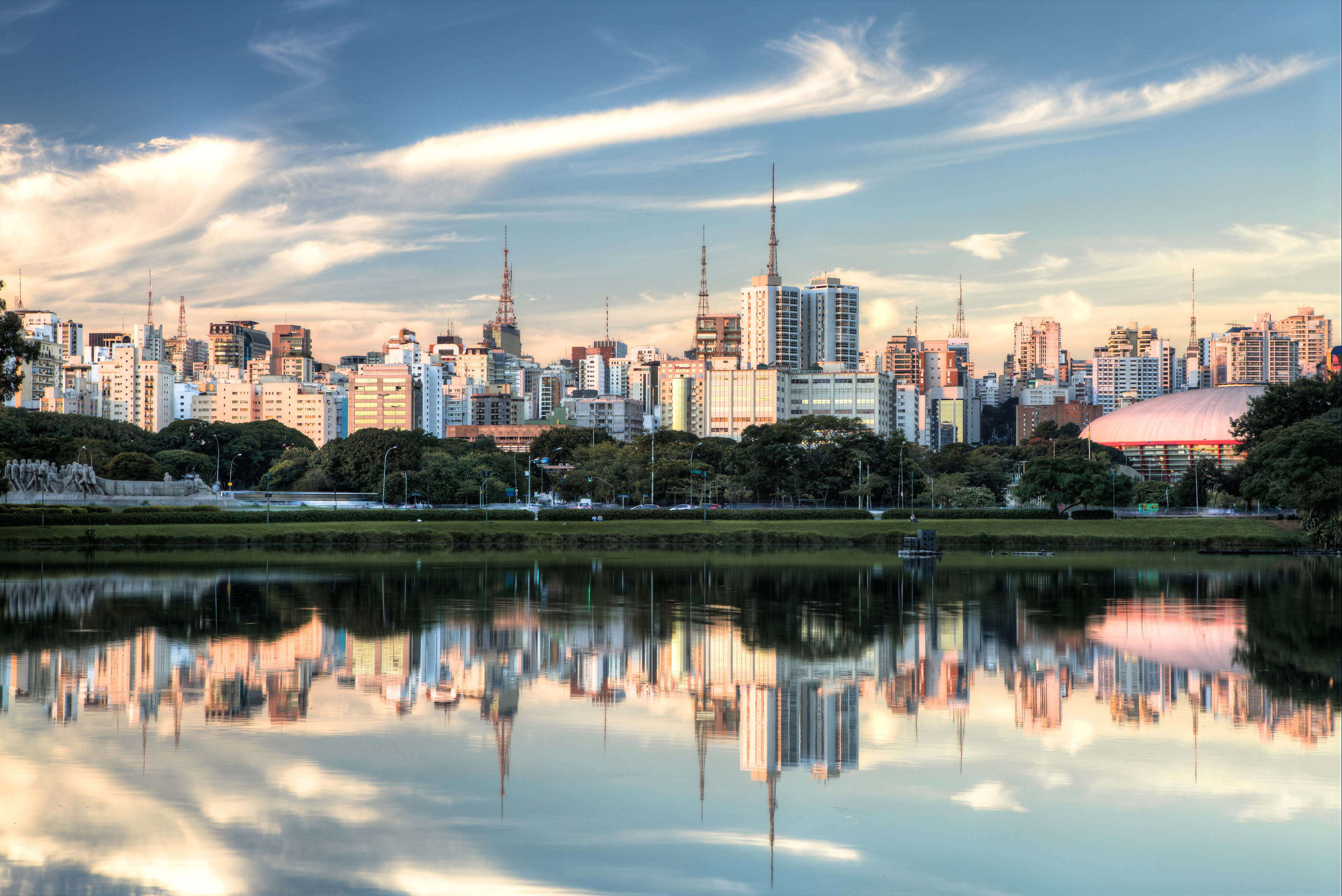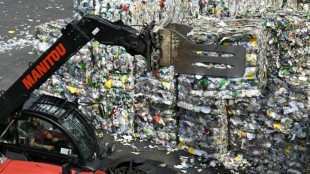

Trump hails Central Asia's 'unbelievable potential' at summit
US President Donald Trump hosted all five Central Asian leaders on Thursday for the first time, a few months after they held separate summits with Russia's Vladimir Putin and China's Xi Jinping.
The West has upped its interest with the resource-rich region, where Moscow's traditional influence has been questioned since the Kremlin's Ukraine invasion and where China is also a major player.
- 'Incredible importance' of rare earths -
"We're strengthening our economic partnerships, improving our security cooperation, and expanding our overall bonds," Trump said before a dinner with the leaders of Kazakhstan, Kyrgyzstan, Tajikistan, Turkmenistan and Uzbekistan.
"One of the key items on our agenda is critical minerals," Trump said at the so-called "C5+1" meeting.
He hailed the countries' "incredible importance and unbelievable potential."
On social media afterward, Trump announced "an incredible Trade and Economic Deal" with Uzbekistan, which he said included Tashkent investing nearly $35 billion over three years -- and more than $100 billion in a decade -- in key US sectors such as aviation, critical minerals, agriculture and IT.
The United States and European Union are drawn by the region's huge -- but still mostly unexploited -- natural resources as they try to diversify their rare earths supplies and reduce dependence on Beijing.
Kazakhstan is the world's largest uranium producer, Uzbekistan has giant gold reserves and Turkmenistan is rich in gas. Mountainous Kyrgyzstan and Tajikistan are also opening up new mineral deposits.
But exploiting these giant reserves remains complicated in the impoverished states with harsh and remote terrains.
Almost as large as the EU, but home to only about 75 million people, Central Asia is landlocked and covered by deserts and mountains.
It is sandwiched between countries that have strained ties with the West: Russia to the north, China to the east and Iran and Afghanistan to the south.
- 'Sent by heaven' -
Trump's counterparts did not hesitate in offering praise to their host.
"You are the great leader, statesman, sent by heaven to bring (back) common sense and traditions that we all share and value," gushed Kazakh President Kassym-Jomart Tokayev.
Uzbek President Shavkat Mirziyoyev was no less effusive.
"Before that, none of the presidents of the United States of America ever treated Central Asia as you do," he said.
"In Uzbekistan, we call you the president of the world."
The five landlocked countries, which gained independence from the Soviet Union in 1991, have put on a united front for diplomacy.
China -- which shares borders with Kazakhstan, Kyrgyzstan and Tajikistan -- has presented itself as a main commercial partner for the region, investing in huge infrastructure projects.
The ex-Soviet republics still see Moscow as a strategic partner but have been spooked by its invasion of Ukraine.
- Abraham Accords -
The biggest announcement of the day was that Kazakhstan will join the Abraham Accords between Israel and mainly Muslim nations, in a largely symbolic move aimed at boosting Trump's push for Middle East peace.
Kazakhstan will be the first country to join since the United Arab Emirates, Bahrain, Morocco and Sudan signed up to normalize ties with Israel in 2020.
The central Asian republic has already had diplomatic ties with Israel for decades, but US Vice President JD Vance said Kazakhstan's decision would nevertheless boost the initiative's "momentum."
Several states in the Middle East have refused to join the accords so far, most notably Saudi Arabia.
- Muffled human rights -
For Trump, who has expressed admiration for hardline regimes, economic cooperation with Central Asia has taken precedence over promoting democratic values.
While the region has opened up to tourism and foreign investment, rights groups have sounded the alarm over the further deterioration of civil freedoms.
"The summit is taking place while all participating governments have increased efforts to stifle dissent, silence the media, and retaliate against critics at home and abroad," Human Rights Watch said in a statement ahead of the talks.
C.Martinez--BT




